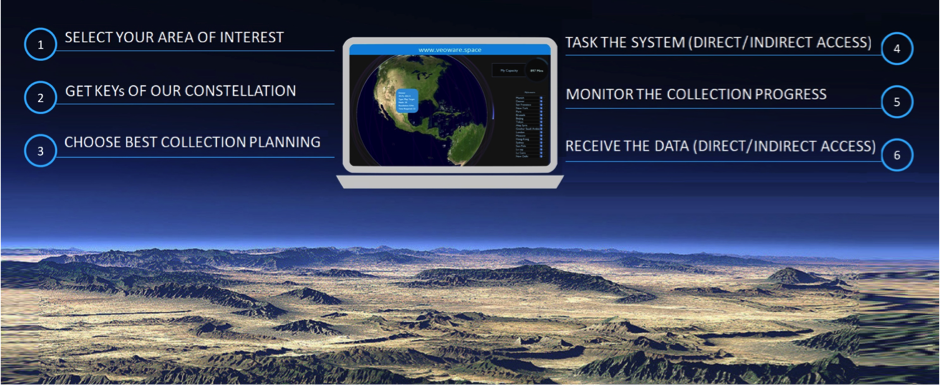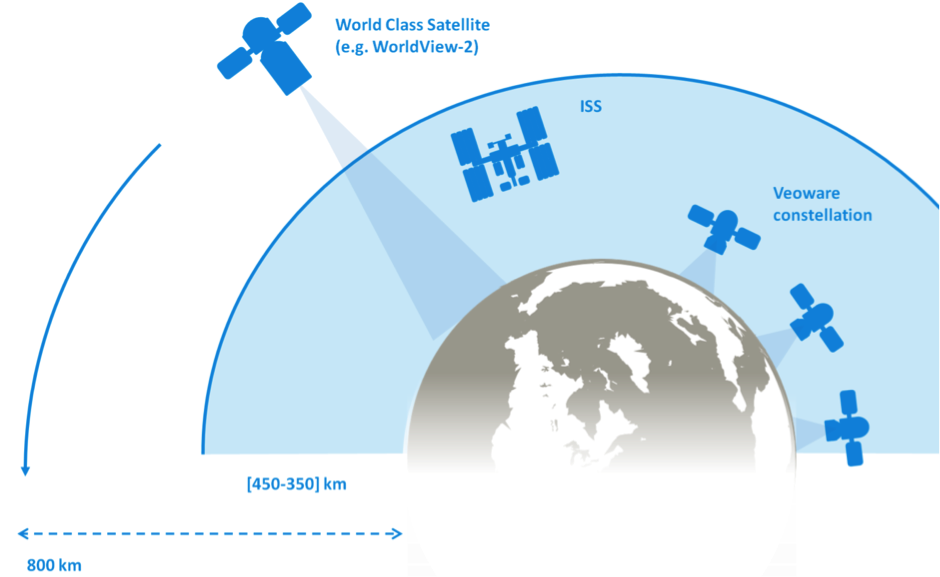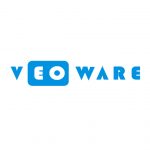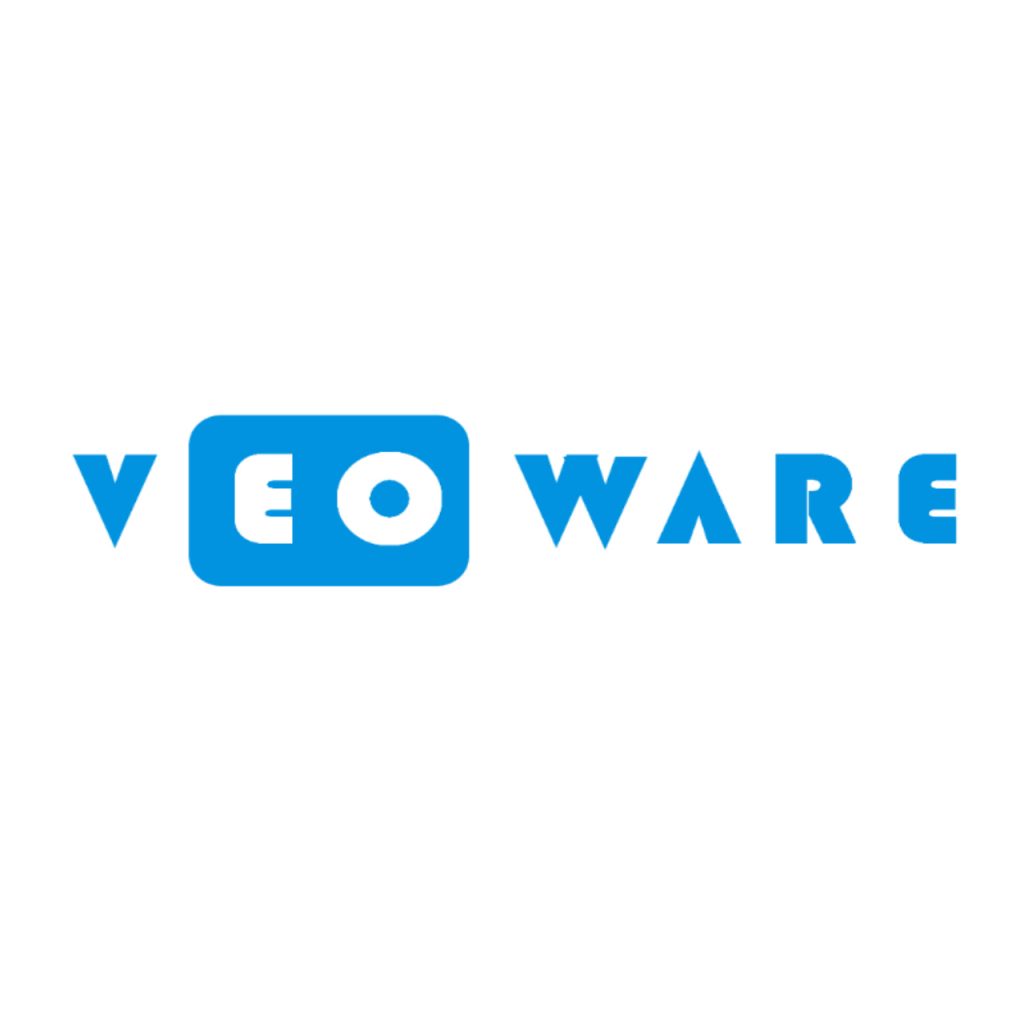Veoware Space is a technology and data company that democratises spy satellite imagery for its customers. We spoke to their founder and CEO Julien Tallineau to discuss how the company was created, what makes their service unique and why the UK is the chosen country for their start-up.
Spaceoneers: Tell us a bit about your story and your company.
Julien Tallineau: It was back in 2015 when I was still working at the UK company, QinetiQ, which has a daughter company in my native country Belgium. It’s funny because in Belgium, the entrepreneurship mind-set is really not present. I was working for traditional ESA projects and I was more interested and looking into commercial space. I came about an idea to do very high-resolution imagery for the earth observation sector using small satellites just by the laws of physics, that says if you don’t have a huge camera, you can use a small one but at a lower altitude. I presented the idea of using such concept to create a new kind of service to my CEO but to him, the project was too risky. Instead of agreeing and deciding not to do it, I knew I wanted to pursue it and so I asked if I could work on it after hours. After a few months, I had created the concept of the company that could be registered.. I quit my job because I had lots of confidence in this side project. I started to go outside the building to meet customers and soon got a Letter of Intent, so I knew I was on the right track. I registered Veoware Space with my co-founder who I knew from university. It all started with a bit of frustration as usual.
Spaceoneers: How did you take that first step? Moving from a full-time job and doing a project on the side to fully committing to this project – how did you manage that?
Julien Tallineau: There are a lot of things that happen behind-the-scenes. You have your normal job, but after hours you constantly work on the start-up. Then there is a switch. At the beginning, your start-up is your other thing, side project or hobby. Then your normal job becomes that; the start-up becomes your full job. It became annoying because I always wanted to get back to my start-up while I was working and I always wanted to finish work fast so I could get back to this project. When you get to that point, you need to make a decision. Either you drop your start-up and are upset, or you quit and decide to create the project by living on savings for some time. Hopefully it will get going. Luckily, we had some help. When I decided to quit my job and during this transition period, I got the idea to propose a consultancy after the end of my contract. That worked, which was good money for transferring my knowledge to the next guy. That’s how we survived in the beginning. In fact, that’s still how we survive because we are developing technology and not selling anything just yet.
At some point your side activity becomes your main activity. You’ll make the choice naturally.
Spaceoneers: You expressed that it was frustrating to be focused and interested in the side project (which became the start-up) while you were working full-time. How did you get through this and how did you stay motivated?
Julien Tallineau: I was motivated by the idea that I’m learning on an exponential curve. When you launch your own start-up, you discover new things (and problems) that you haven’t thought about. You may be discouraged because you can’t solve yesterday’s problem but you have a new one today. In the beginning, I realised that I would be learning very fast. Even if I fail, which is very possible, I will still go back to the industry with lots of knowledge that I can then show for. I am only 30 years old, but I may have more knowledge than those much older than me. In the long run, this remains difficult. As with a start-up, it is hard to stay motivated when problems keep coming, so it’s important to focus on the little achievements. In the space industry, this is very hard. It is not like in this industry we can create something that can be sold the next day. Space is one of the hardest industries in the world, where we have to be rock-solid motivated. These things are important to understand to stay motivated.
Spaceoneers: How did you get people interested in your idea or approach potential customers?
Julien Tallineau: You dare. Here’s an example, I contacted the head of Airbus Defence and Space in the section of Earth Observation and Imagery. I knew his name and surname so I decided to try contacting him. I sent so many and every time we would get a brochure saying that it was great meeting us at different conferences. At some point, you dare and fish as much as you can because you cannot always be at every conference. It was good. Basically, I got to contact the one responsible, who looked at our case.
To get a Letter of Interest or Intent you have to be confident. Feeling that your confidence will work makes you feel that you will do everything you can to make something work. You trust your skills and eventually, they sign. This was done after we registered the company – this is also very important. Never sign anything under your name, bad idea.
Spaceoneers: How did you get your team together?
Julien Tallineau: My co-founder is a friend from university who I’ve known for twelve years. We decided that we would do something together when we studied together in Belgium. When I got the opportunity to move forward with this idea, I called him and asked for his help on a project with big ambitions and high risk. It took 6 months to get to the same level. Building on trust, experience, and knowing you can work together.
Spaceoneers Why are you located in the UK? I understand you were previously in Brussels with much European infrastructure there.
Julien Tallineau: I explained to others that I was an entrepreneur in Belgium, the UK and USA. Somehow, the UK and USA were very excited and wanted to know about it. They believed I was (or would soon be) rich. When I was in Belgium, I was perceived as poor and struggling. I was seen as a very risky guy without much of a salary and who was living in very temporary conditions. The space sector in the UK is flourishing and the government has big ambitions, so it felt like the right place to be.
Spaceoneers: Does Brexit worry you?
Julien Tallineau: We registered our company before it happened but it does bring some stress, as we did not see it coming. Now, our investors in the UK are asking us to have a presence on the (European) continent to continue having good access to European Commission contracts. So, we opened a new branch in Belgium. Loop is closed.
Spaceoneers: Can you explain your company’s technology and service? You’re focusing on low-Earth orbit satellite constellations and are leasing the use of satellites correct?
Yes, that’s it. Big companies these days are procuring big satellites between 1 and 3 tonnes to do the job, which is very expensive. The capacity to take imagery has always been there. I like to consider the aviation business: many big the airlines don’t own all of the airplanes that they use. For example, sometimes they will lease planes per year or for the summer because they will have more passengers during this time. This allows the airlines to absorb the demand and can then give it back. The same applies for satellites. Instead of asking big companies to buy new satellites, I’m coming with my own new solution that is different where they can access and get the keys to our fleet any time they want.

Spaceoneers: You’re also developing your own constellation?
Julien Tallineau: Yes. We offer very high resolution in a different and disruptive way. We can do around below 50 centimetres ground sampling distance, but we are going to do it from a satellite of less than 500 kilograms – this is the first time this will happen. Our satellites will stay for more than 5 years in orbit so we can maintain it longer, this is how the business case comes in.
The market needs more high-resolution data. Thanks to companies, like Planet, that are flooding the market with medium and low-resolution data; very high-resolution data is super scarce. You don’t find that a lot, which is why it is expensive. We want to solve that and to inject capacity in that market, which will decrease the price and provide downstream applications for the UK. That is the most important for us: that even the UK gets its own sovereign data and can use it downstream.

Spaceoneers: What big changes do you expect to see in the next years in Earth Observation?
Julien Tallineau: In the coming years, I think earth observation will forget about the satellites. It’s a key sentence that we use as one of our mottos. We want the world to forget about the satellites. Back in the days of navigation and GPS, people were talking about the satellites. Now, people talk about Google Maps and nobody talks about how many Galileo or GPS satellites are up there. We want people not to care about how many satellites are observing the Earth on a daily basis. This is the change we want to create and to be part of that. This will be a big move.
Spaceoneers: How did the name come about for your company?
Julien Tallineau: It’s pretty easy. In ‘ware’ you have reference to software, hardware and warehouse (raw materials). Veo comes from Spanish “I see”. So VEOWARE means material to see – this is the definition of an image. We are offering raw material for vision.
Spaceoneers: What advice do you have for those launching a start-up?
Julien Tallineau: Get an advisory board and a lawyer. You may be the brightest minds in the world, but if you have to draft a shareholder agreement and Memorandum Of Understanding (MOU) yourself and all you understand is the equations, it’s great to have a reliable and good team.
Spaceoneers: What makes you a space pioneer, or “spaceoneer”?
Julien Tallineau: It’s not the first company I’ve made. For any company that I’ve been involved in for the space sector, I try to achieve something big. In all of them, I still try to bridge the gap between the space sector and the consumer. This is the fire that’s behind every single email and report we write or technology we build. We want to bridge a gap that no one has done before.

